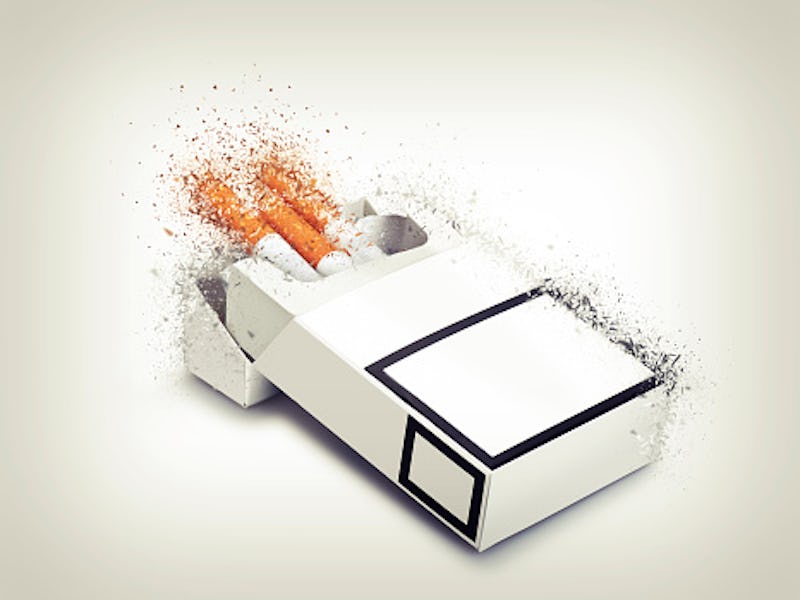How long does it take to become nicotine-free?
U-Haul's nicotine-free workforce policy affects more than cigarette smokers.

Moving and storage company U-Haul will no longer hire employees who use nicotine, declaring itself the “first major company” to implement such a rule in a statement released this week.
The rule will be implemented in the 21 states where it is legal to deny employment to people who use nicotine. The company also announced the policy will only apply to new U-Haul applicants, starting February 1.
The response to the news on social media has varied widely, with some supporting the practice and others labeling it as “discrimination.”
The policy also begs the question: What does this really mean for people who smoke, vape, or use a nicotine patch? And how long will hopeful applicants who use nicotine need to wait before seeking employment?
How long does nicotine last in the body?
When nicotine enters the body, through any method, it metabolizes into a substance called cotinine. Levels of cotinine show up in your urine, blood, and saliva — and any of those can be tested. That’s important because while nicotine only stays in the body for a few hours, cotinine might last for several days or longer.
The American Association for Clinical Chemistry reports that it can take more than two weeks for cotinine blood levels to completely drop, compared to those of a non-tobacco user, once someone completely stops using tobacco and nicotine products. Meanwhile, it can take several more weeks for cotinine levels in urine to drop.
Why cotinine levels matter
In states where it’s legal, U-Haul job applicants will have to submit to a drug test, according to a statement on the company’s website.
U-Haul will decline job applicants who are nicotine users in states where the practice is legal.
While the company doesn’t say what type of test will be used, it is typically cotinine levels — instead of nicotine levels — that are tested, because of cotinine’s relative stability. According to the CDC, measuring cotinine in people’s blood is the “most reliable way to determine exposure to nicotine for both smokers and nonsmokers exposed to environmental tobacco smoke.”
Cotinine is measured in nanograms per milliliter (ng/mL). The University of Rochester Medical Center reports that in nonsmokers, cotinine levels are typically below 10 ng/mL. Light smokers or those exposed to secondhand smoke will have levels ranging from 11 ng/mL to 30 ng/mL, and in heavy smokers, levels might exceed 500 ng/mL.
Those results can vary by person and smoking product. For instance, those who smoke menthol cigarettes see longer-lasting chemical byproducts in their systems, according to research published in the journal Nicotine & Tobacco Research. Male and African American smokers also tend to have higher cotinine blood levels, a statistic that researchers pin to enzyme processing.
Meanwhile, a single JUUL pod contains as much nicotine as a pack of 20 regular cigarettes.
Although nicotine patches and gum do not release as much nicotine as a cigarette, the use of these products will still show up on a cotinine test. Second-hand smoke exposure can also trigger a false positive — but only if an individual is frequently exposed to high levels.
It typically takes seven to 10 days for a person’s cotinine levels to return to normal after they’ve either smoked or been exposed to nicotine.
Reactions to U-Haul
In the wake of the U-Haul announcement, some Twitters users are concerned about the implications of telling employees they can’t use certain legal substances. Twitter user Jess Turner calls the practice discriminatory, and points out that caffeine, like nicotine, is a stimulant — suggesting that this kind of rule has the potential to go much further.
Some say U-Haul's new rule counts as hiring discrimination.
A reaction to the U-Haul nicotine ban.
Meanwhile, U-Haul Chief of Staff Jessica Lopez states that the policy is in place to promote a healthy workforce, describing it as “a responsible step in fostering a culture of wellness at U-Haul.”